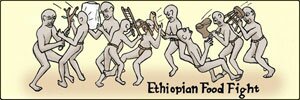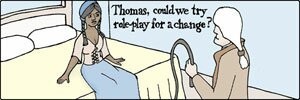ESSAY- College censors: Why they deserve a big fat 'F'



The one that got Grant Woolard yanked and two others that created less massive firestormsCAVALIER DAILY
A few years back, when staffers at Baylor University's student newspaper published an editorial supporting same-sex marriage and likening discrimination against gays to religious intolerance, the president of the Baptist school in Waco, Texas, did not turn the other cheek. Instead, Robert B. Sloan issued a veiled threat to expel the student-editors.
"Espousing in a Baylor publication a view that is so out of touch with traditional Christian teachings," he seethed in the next edition of The Baylor Lariat, "comes dangerously close to violating University policy, as published in the student handbook."
A board of faculty advisers rushed out a statement meekly promising that the Lariat would "avoid this error" in the future. Explaining that the editors would not be punished for their sins, board member Larry Brumley told a reporter: "It was a teachable moment."
Teachable indeed. But what was the lesson? At a crucial moment in their development, Baylor journalists-in-training learned not to take risks, to fall in line, and stop questioning authority.
The Baylor case is no isolated incident. Editors at the University of Virginia's student newspaper, the Cavalier Daily, recently wilted when faced with protesters carping about a cartoon that ran in the paper. Above a caption that read "Ethiopian Food Fight," Grant Woolard's cartoon depicted African tribesmen, clad in loincloths, grappling over inanimate objects such as a boot and a tree branch. The gag, intended to raise awareness about famine, fell flat, and the artist publicly apologized for a clumsy use of stereotypes. A more experienced cartoonist would have likely made the point without unleashing a firestorm, but cartooning by its nature often offends readers. To paraphrase Thomas Paine, a cartoonist who dares not offend cannot be honest.
African-American student groups– and some school administrators– overreacted to Woolard's cartoon, branding the college student the campus Don Imus. About 200 students protested outside the Cavalier Daily's offices and demanded Woolard's ouster. Unnerved editors quickly capitulated to the mob, removed the cartoon from the paper's website, and jettisoned Woolard.
In a shameful display of spinelessness, editor Herbert Ladley unveiled a new policy to pre-empt future reader complaints: "I think the goal is to come up with a strategy so the comics don't even go into the paper to begin with." Does Ladley hope to work as a journalist in the United States of 2007 or the Soviet Union of 1957?
Unquestionably, some school administrators act as though they run Pravda. Barton County Community College in Kansas fired its paper's media adviser after she resisted an order not to run a letter criticizing the school's basketball coach. La Roche College, a Catholic school in Pittsburgh, confiscated 900 copies of the La Roche Courier in which a columnist dared to suggest that "condoms and other forms of contraception could eliminate unwanted babies out of wedlock."
And Long Island University in New York changed the locks on its student newspaper offices and suspended its editor for rigorous reporting– revealing the failing grades of a former student government president who had mysteriously resigned. Deplorable in itself, a repressive atmosphere at our learning institutions can breed a pernicious self-censorship.
Chris Carroll, director of student media at Vanderbilt University and a former president of College Media Advisers, a college censorship watchdog organization, worries that young journalists are increasingly "submissive." He cites a troubling case at his own university: "I had a freshman who was on something that I think could have been a story, [concerning] our current chancellor, with some of his affiliations with corporate boards outside the school. He kept digging and learning more and more and more, and he talked to the chancellor who scared the living sh*t out of him. ... He said, 'You know I'm here on financial aid, these people can sue me, ruin me, ruin my family,' and he quit the paper. He's gone."
If colleges discourage young reporters from investigating powerful interests while in school, how can society expect them to probe corruption once they graduate? And when students cower in fear for proclaiming provocative opinions on campus, how can we expect them to stand up for what they believe off campus?
David Wallis runs the Featurewell news service and has written two books on censored stories including his most recent, Killed Cartoons. He wrote the first version of this essay for Newsday– before learning about the forced resignation of the Cavalier Daily cartoonist.
#